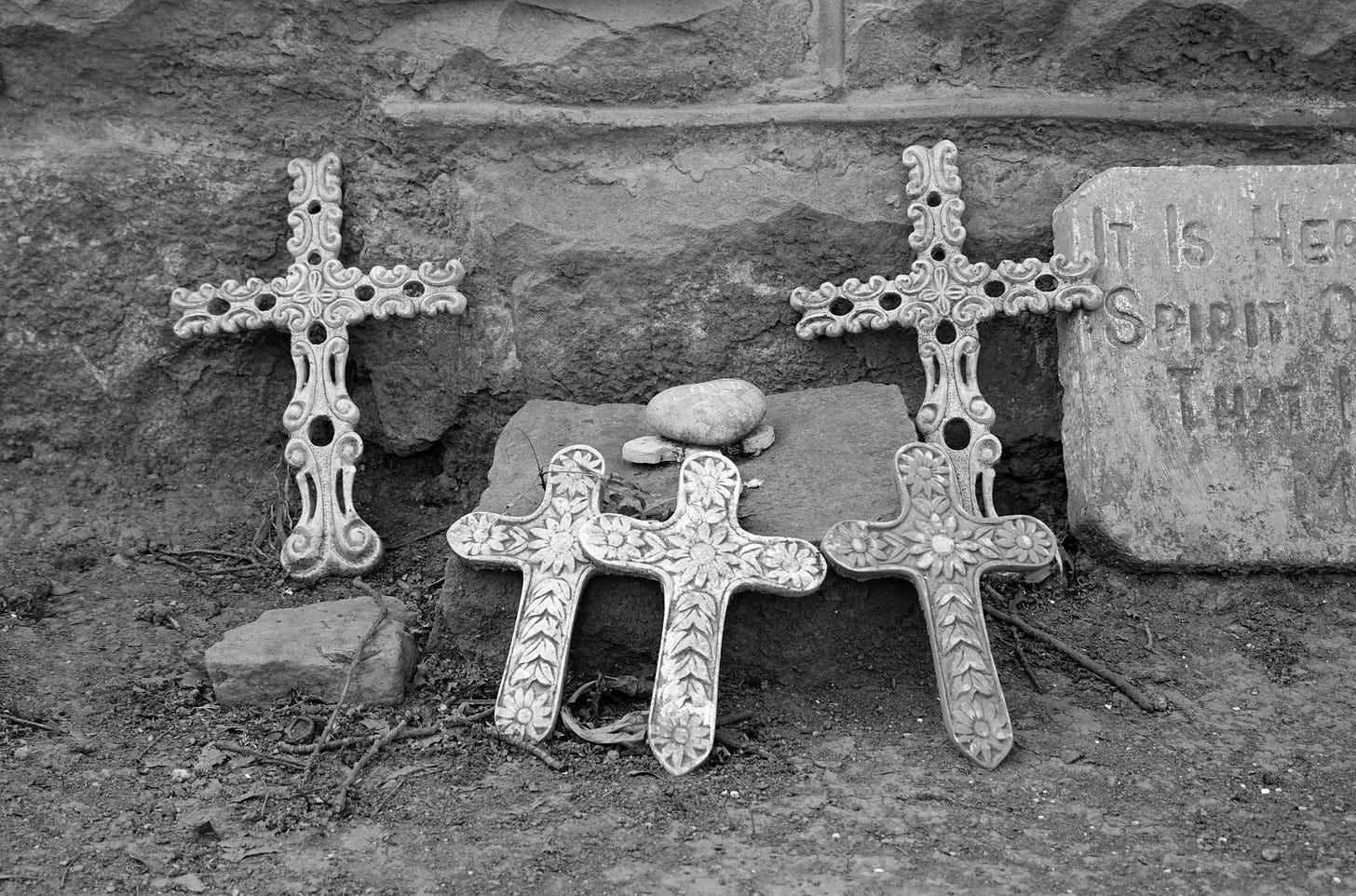Poetry about Unknown or Unrecorded Ancestors
Give voice to the ancestors whose stories history forgot.
Every family tree has its blank spaces where names have faded, or where stories were never told. Just like the unmarked spaces in cemeteries, or unmarked stones, where ancestors are buried without names. Writing poetry about these ancestors gives them a voice. Through imagination and empathy, you can honor their existence and fill those quiet gaps with tenderness, respect, and curiosity. Poetry helps us ask: Who were you? What legacy did you leave, even if it wasn’t written? What is your story?
Poetry Form Spotlight: The Monologue Poem
A dramatic monologue poem lets a speaker (real or imagined) tell their story in their own voice. It’s a perfect way to inhabit an ancestor’s perspective — whether you’re writing as a great-great-grandmother, a nameless ancestor, or even the spirit of a lost generation. Focus on tone, personality, and detail to make their voice feel alive.
🪶 Tip: Begin with “I was the one who…” or “They said I never…” to slip naturally into character.
Wikipedia: Dramatic Monologue
Frontier Poetry: Poetry Terms: Dramatic Monologue, Mood, Confessional
The Society of Classical Poets: Six Great Dramatic Monologues by Robert Browning
Poetry Prof: Monologue
Mini-Prompt
Write a monologue poem beginning with: “I was the one who was never named…”
Call to Action
Share your finished poem with your readers or family group. Invite others to write about their “blank branches,” and see how many forgotten ancestors find their voices through poetry. You can also share here. Honestly, I should be sharing as well. Time to buckle up, I reckon.
Be sure to visit Goin’ Poetic’s website to read the full article, including a reading list and a checklist you might want to tap before you begin writing.




I like those prompts for starting to talk about those missing people. I've thought about the ones with no name, the women with no last name, and the ones who appear once in a census and then vanish. Remembering them is one small way to give them a presence.